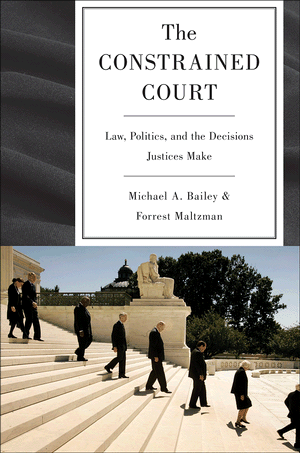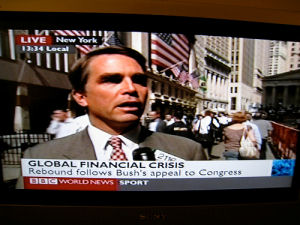
“The Rights of Journalism and the Needs of Audiences”: Onora O’Neill on the Rise of Corporate Media
On 21 November 2011, the Oxford Reuters Institute for the Study of Journalism hosted its annual Memorial Lecture at St. Anne’s College, exploring “The Rights of Journalism and the Needs of Audiences.” The topic shed light on the phone hacking scandals that occurred last summer, shaking both media and consumers alike, and culminating with the closure of Rupert Murdoch’s News of the World. The Institute had the distinct pleasure of hosting renowned philosopher and former President of the British Academy, Baroness Onora O’Neill, to deliver the lecture. O’Neill framed her talk around the complicated relationship between the rights to privacy and free press, emphasising that the debate between these two key features of democratic societies fails to adequately show how …
How the ICC can help Kenya
The ongoing International Criminal Court trial into the so-called “Ocampo Six” is a reminder of how raw the violence around the 2007 Kenyan election remains. It now seems likely that the verdicts on the six won’t be announced until next year – until which time Uhuru Kenyatta, one of those accused of inciting ethnic violence, remains in the post of Deputy Prime Minister. Over 1100 were killed, and had the coalition agreement not come when it did, the spectre of fully-blown Civil War was a genuine possibility. The international community was in shock, having traditionally viewed Kenya as one of the least violent countries in Africa. Really, they shouldn’t have been. A brief history lesson into how Daniel Arap Moi …

The U.S. Supreme Court and health care
Obama’s landmark health care reform legislation was perhaps the most consequential social policy change in the U.S. in several decades. And we now know that whether it will fully go into effect will depend on the views of the nine unelected, life-tenured justices of the Supreme Court. After Bush v. Gore and Citizens United many Court observers have become jaded, viewing the Court’s actions simply as extensions of politics. This view has a strong pedigree in political science and, if it is correct, it’s pretty easy to predict what will happen to the health care law: down it goes. Four justices are solidly conservative and there is little doubt about their policy preferences. A fifth, Justice Kennedy, is a …

The Myth of ‘Sixty Years of Oppression’
Reem Abou-El-Fadl has recently published an article in Al-Akhbar English newspaper entitled ‘From Nasser to Tantawi: The Myth of “Sixty Years of Oppression”‘. The article considers the connections that have been made in Egypt between the July 1952 Revolution, launched by the Free Officers movement, and the January 2011 Revolution, launched by this year’s popular uprising in Egypt. The article acknowledges that military officials first came into government after the July Revolution, but it goes on to explore the deceptive myth of ‘sixty years of oppression’ since, which has been heard often in recent months. ‘Yet today’s generals are protecting an entirely different set of interests from those important to the Free Officers. They have presided over months of delay …
Mutualism and social democracy
The role of the mutual sector in forging a strong economy and a more equal society is fast becoming hotly contested territory in British party politics. In the wake of the most severe global depression for more than eighty years and the search for viable and practical alternatives to neo-liberalism, politicians across the ideological spectrum have ostensibly vied to champion and take ownership of the mutualist cause. The values and institutions of mutualism have the potential to act as a vehicle for a new politics of the public interest after the financial crisis, or so the argument goes. For the left in particular, mutualism offers an alternative to the Coalition government’s invocation of ‘the big society’. Nonetheless, the operating frameworks …
Why Reinhold Niebuhr?
Pardon the self-promotion: I reviewed a new book on Reinhold Niebuhr, a theologian and realist political thinker during the Cold War, in last week’s Economist. Niebuhr died in the 1970’s but both Democrats and Republicans lean on his advice (even if misread) to guide their modern foreign policy views. Here is a snippet from my review of the book, Why Niebuhr Now?, by John Patrick Diggins, the late American intellectual historian. AFTER years in the doldrums, Reinhold Niebuhr, an American theologian, is enjoying a comeback. Although Niebuhr died in 1971, he is nowadays often name-dropped in opinion columns and highbrow chat as the ideal mind to help guide 21st-century political leaders through the ups and downs of world affairs. It …

Nation States, Capitalism and the Crisis
Numerous questions pose themselves for political economists about the crisis – enough (never waste a good crisis) to keep PhDs engaged for a generation. But in my view there are two big picture questions which modern comparative political economy needs to answer. One is why the epicentre of the crisis was in Wall Street and the City of London. The other is this: the crisis occurred as a result of failures in the main regulatory frameworks – the financial and the macroeconomic – which govern much of the workings of advanced economies. Why, in sharp contrast to the 1930s, have these frameworks changed little since the crisis? These questions raise major issues for our understanding of modern capitalism and its …

Which Entity is the Government of Libya and Why does it Matter?
In the past couple of days, Germany and Canada have joined the group of countries that have declared that they consider the National Transitional Council (NTC) in to be the “legitimate representative” of the Libyan people. But what exactly does this mean? According to the BBC, the group of countries extending this recognition includes France, the UK, Italy, Spain, Germany, the UAE, Qatar, Jordan, Gambia, Senegal and Australia. Russia and the United States have had meetings with the NTC and have also made similar declarations about the illegitimacy of the Gaddafi regime and about the legitimacy of the NTC (see previous post by Stefan Talmon on the US position in March). What are the legal implications, if any, of these …









